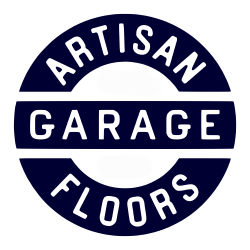Frequently Asked Questions About Epoxy Garage Floor Coatings
To make things easier for you, we compiled a list of our most frequently asked questions. Here, we cover everything from our process to our products.
However, if you have a question that’s not on this list, simply fill out our online contact form or give owners Mark or Daniel a call directly at (682) 308-5812. We look forward to hearing from you!
A normal garage floor installation requires 5-8 hours, usually spread out over 2 days, depending on the specific job and conditions.
It depends on the specific conditions of the job. If the conditions are right, we can offer that option. Remember, there are many factors that determine which material or process is best for an individual job.
1-day floors are great for us as contractors, but it may not provide you with the best product.
But if time is of the essence and the conditions are right for a 1-day installation, we are happy to do so.
Typically, you want to allow 2 days for installation, and then another 24-48 hours from the time of completion to allow the coating to fully cure.
Yes, we can use a variety of cutting-edge materials to repair cracks and damage so they are no longer visible and making them much less likely to return.
We purchase all of our materials directly from some of the country’s top manufacturers. This allows us to source higher-quality materials at a better price, which allows us to provide you with a better value.
Working with the manufacturer also provides us with first-hand product and application training, tight quality control, and gives us access to the latest materials and methods.
The most common materials that we use in our garage floor systems include 100% Solids Epoxy (Low-VOC) and Polyaspartic Urethane/Polyurea.
Diamond-Grinding and Shot-Blasting are the only methods of surface preparation that we use.
Acid-washing is not a method that is used by professionals. It does not create the textured-profile that is required for these types of coatings to properly bond to the concrete, and the method is not approved by the International Concrete Repair Institute (ICRI).
Also, if the acid is not properly neutralized, the altered pH can actually damage the concrete and the new coating.
We use dust extraction systems with HEPA filters that are specifically designed for concrete dust, to control the dust that is generated during the grinding or shotblasting process.
Simply mist it with water and use a soft foam squeegee to pull the water out. The soft-foam will take dirt, debris, and other foreign material with it. If you feel you need to use cleaning products, only use non-detergent cleaning products like Fabuloso, Ammonia, or Vinegar.
A good garage floor coating is very low-maintenance. See our Maintenance and Care Page for details.
We use anti-slip compounds in all of our coatings.
However, you should ALWAYS USE CAUTION WHEN A FLOOR SURFACE IS WET or contaminated.
We are not able to move your belongings for you, we require that the garage floor is empty when we arrive.
We are willing to assist you with large items such as refrigerators and tool chests.
The Polyaspartic Urethane topcoat that we use on all of our systems is inherently UV-tolerant, and will not amber.
The aggregates we use are uv-tolerant as well. However, floor systems with a light or medium flake spread may see a slow color-shift over time.
ABSOLUTELY NOT. Our experienced artisans work exclusively for Artisan Garage Floors.
No, our Artisans have installed a minimum of 250 residential garage floors each. We also have apprentices that are coming up through our ranks, but there will always be a skilled artisan leading your installation.
No. Polyaspartic urethane is non-porous and highly resistant to chemicals and staining.
NO. These floor coating systems are designed to be very durable, and they offer good resistance to impact, abrasion, chemicals, and staining. But, they can still be damaged.
Yes. The stem walls are a short concrete footing between the surface of the garage floor and the walls. If they are less than 6″ tall, they are included at no additional charge.
The aprons are the section of concrete between the garage door and the driveway. This can be done as an option but is not standard. Please inquire for more information.
Still Have Questions?
Get in Touch and we'll Get you answers!
We service the following Areas and more:
- Dallas
- Fort Worth
- Argyle
- Arlington
- Addison
- Bedford
- Carrollton
- Colleyville
- Coppell
- Corinth
- Denton
- Euless
- Farmers Branch
- Flower Mound
- Frisco
- Garland
- Grand Prairie
- Grapevine
- Highland Village
- Hurst
- Irving
- Keller
- Las Colinas
- Lewisville
- Little Elm
- McKinney
- Roanoke
- Mid-Cities
- North Richland Hills
- Plano
- Prosper
- Richardson
- Justin
- Robson Ranch
- Southlake
- The Colony
- Trophy Club
- Tarrant County
- Denton County
- Dallas County
- Collin County
